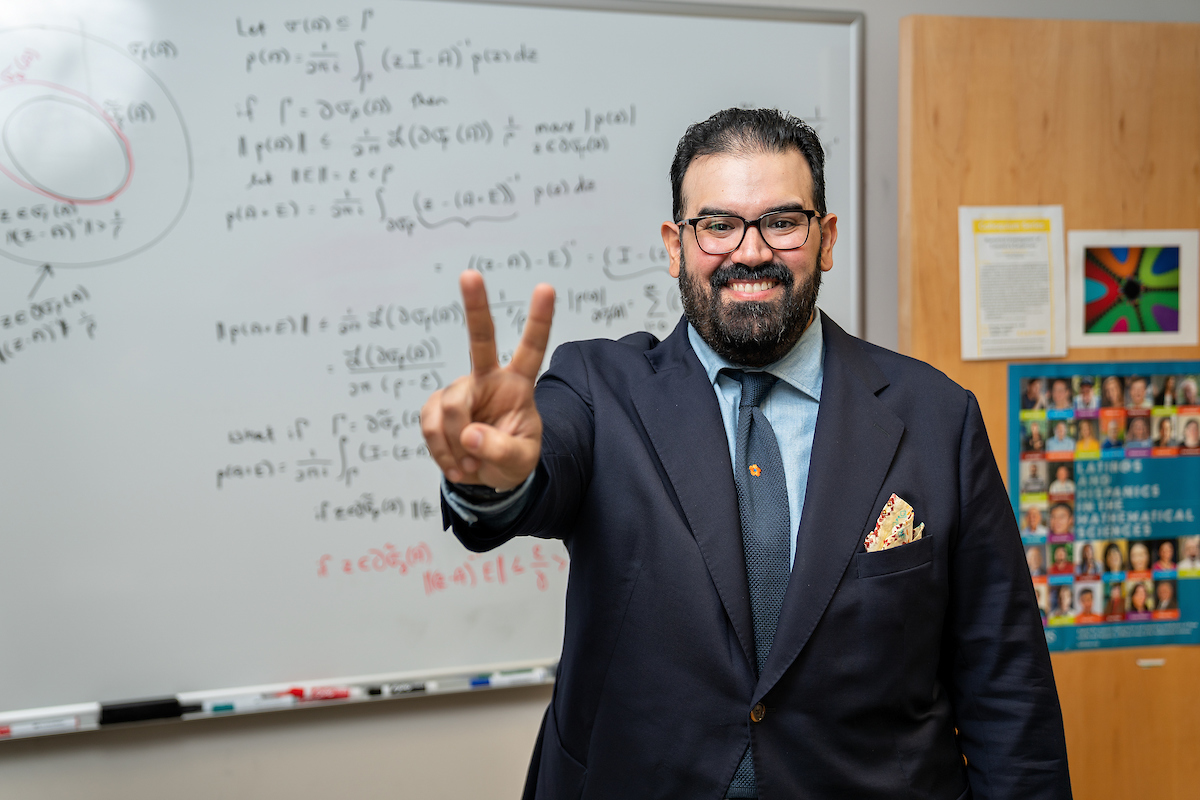A doctorate in mathematics is a higher form of doctoral study. It’s the highest level of achievement a mathematician can reach and it requires years of intensive work on a topic. If you’re interested, then this article will give you some useful information about getting your Ph.D. in maths.
First things first: if you want to become a professor of mathematics, then you need to be accepted into graduate school. Graduate programs are highly competitive, so it’s best to get started early and apply for scholarships. The application process can take months and may require lots of writing.
After you’ve applied to grad schools, you’ll likely be asked a lot of questions about your background and interests. Don’t worry too much because you don’t have to tell them anything about yourself. Instead, just answer honestly.
The next step is to work hard for the rest of your life to finish your dissertation. This means that you should spend at least six years studying mathematics.
The Importance of PHD
Ph.D. stands for Doctorate. It’s one of the highest academic degrees you can get in your life. If you want to know why you should go for a Ph.D., here is the answer.
A doctorate means that you have achieved an extremely high level of education. This is the same as getting a master’s degree, but it requires more study.
If you’re thinking about studying for a Ph.D., you need to make sure that you are ready to work very hard. You will be required to read a lot of books and papers, and you’ll also have to complete lots of assignments.
You must remember that a Ph.D. takes several years to finish. So, it would be a good idea to start planning for this early on.
When you’ve completed your studies, you can use your new knowledge to help others. For example, you could teach at university or become an expert in your field.
There is no doubt that you will enjoy the lifestyle of being a professor. But, there are many other benefits too. One of them is that you will earn a higher salary than most people.
What Is a Mathematician?
A Ph.D. is a doctorate that’s earned by completing a rigorous program of study at a university. The title “doctor” comes from Latin meaning “teacher.” So, a Ph.D. stands for Doctor of Philosophy.
To earn this prestigious title, you must have completed your undergraduate studies with an average GPA of 3.0 or higher. You also need to complete three years of coursework, including two research papers, one thesis, and a dissertation.
Once you’ve successfully defended your dissertation, you will be awarded a Ph.D. certificate. This document is considered the highest academic honor you can receive.
If you’re interested in pursuing a career in mathematics, then a bachelor’s degree is the minimum requirement for admission into most graduate schools. However, some programs may require a master’s degree as well.
There are many different types of degrees that you could earn, but you’ll want to make sure that your major is related to what you plan on doing after graduation.
For example, if you want to become an engineer, then you should choose a field like engineering, computer science, or physics. If you want to teach, then consider math, biology, or chemistry.
How to Become a Mathematician?
If you want to be a mathematician, then you need to study hard. There’s no other way around this. But, how do you know that you’re studying hard enough? You could always ask someone who knows more than you. That person might have advice on what kind of books you should read. Or, they may tell you to keep track of your progress by writing down notes from time to time.
However, there is another option. If you want to learn a little bit about mathematics, then you can take a look at the article below. This will give you a basic overview of the subject.
There are many different ways that you can go about learning the basics of math. For example, you could try to get an online course. You could also use a textbook to help you understand the material. The best thing that you can do, however, is to start reading some articles like the one that follows.
You don’t necessarily have to spend hours and hours every day trying to figure out everything. It would probably be better to limit yourself to just an hour or two each week. After all, there’s no point in spending a lot of time on something that you won’t end up using.
The Types of Phds in Mathematics
To get a Ph.D., you need to complete your studies at an accredited university. Once you have done so, you will be able to apply to become a professor. Many different types of Ph. Ds can? be earned in math, including:
A doctorate in applied mathematics is usually awarded for research in the field. This type of degree takes three years to earn.
An advanced doctoral degree in mathematics can take four to six years to finish. Some schools offer this as a joint program with other disciplines such as physics and biology.
A master’s degree in mathematics can also last for two to four years. However, it may not require any coursework outside of the subject.
A bachelor’s degree in mathematics is one year long, but you must pass several courses before you are eligible to enter graduate school.
You should know that there is no standard way of earning a Ph.D. You might want to consider doing an undergraduate degree first. Then, once you have completed your studies, you could go on to do postgraduate work.
The job market for mathematicians is expected to grow by 12% over the next decade.
How Many Years Is a Ph.D. in Mathematics?
A Ph.D. (or Doctor of Philosophy) degree is awarded by universities to students who have completed their doctoral studies.
This type of qualification requires an extensive research project that involves the development of original theories, methods, and results.
It usually takes three to five years for a student to complete his/her dissertation. This means that the average age of someone with a Ph.D. in Mathematics is around 40-50 years old.
However, the exact time required to obtain this degree varies from person to person. Some people take longer than others, but most people will need at least 5 years to finish a Ph.D. in Mathematics.
The amount of funding available for a Ph.D. program also plays a role. A university may offer more money towards the completion of a doctorate, so this could be another factor that influences the length of the process.
In addition, some people choose to work while they are completing their thesis. So, even though it might seem like you’ll spend several years working on your dissertation, there is no guarantee that you will.

What Is the Qualification for Ph.D. in Mathematics?
A Ph.D. degree is a doctorate awarded by universities around the world to students who have completed their doctoral studies successfully. The completion of these degrees requires years of study, research, writing, teaching, and other activities.
There are different kinds of doctoral programs available at most institutions of higher learning. Some of the more common ones include:
- Doctor of Philosophy (Ph.D.) – This program usually takes three to five years to complete. Students must write and defend a dissertation.
- Master of Science (MSc) – Usually, this type of program lasts one year. During that time, students will be required to take courses in the field of interest.
- Bachelor of Arts or B.A. – Students are expected to graduate with a bachelor’s degree after four to six years.
- Bachelor of Science or B.S. – Typically, this is the shortest of all the undergraduate degrees. It typically takes two to four years to earn.
The qualifications for getting into a Ph.D. program vary from university to university. However, they are generally very high. For example, many schools require a minimum GPA of 3.0 and GRE scores of 550 in verbal and 670 in quantitative sections.
Which Subject Is Best for Ph.D. in Mathematics?
Math isn’t just useful when you’re trying to figure out how much money you have left on your credit card. There are many other ways that this skill can benefit you. For example, you can use it to improve your job prospects. If you know basic algebra, you’ll be able to understand financial statements better. And you could also apply it to everyday life.
There you will find information on the various subjects that are available at different universities. You may even discover a few schools where you can study these topics in greater depth.
The most important thing to remember is that you need to do your research. Make sure that you choose a program that has plenty of opportunities for postgraduate work.
In addition, you should look for a university with a strong reputation. A good place to start would be to visit the websites of the leading institutions in your area.
What Is the Salary of a Ph.D. Maths?
A Ph.D. in mathematics is a very prestigious degree. If you want to earn a high-paying job, you need to have this kind of qualification. The question that you should be asking yourself is how much it costs to get one.
There are many universities where you can study for a doctorate in math. However, the most popular option is to go to the United States. This is because there are more opportunities for employment in the US than in other countries.
It’s important to note that getting a Ph.D. doesn’t guarantee that you’ll make a lot of money. Some mathematicians end up teaching at schools, while others work in research laboratories.
Regardless, it is possible to make a decent living as a mathematician. You just need to do your homework first. Start by finding out the average salaries of people who hold the same position as you. Then, use this information to determine whether or not you can afford to pursue this career.


 Lucas Green
Lucas Green

